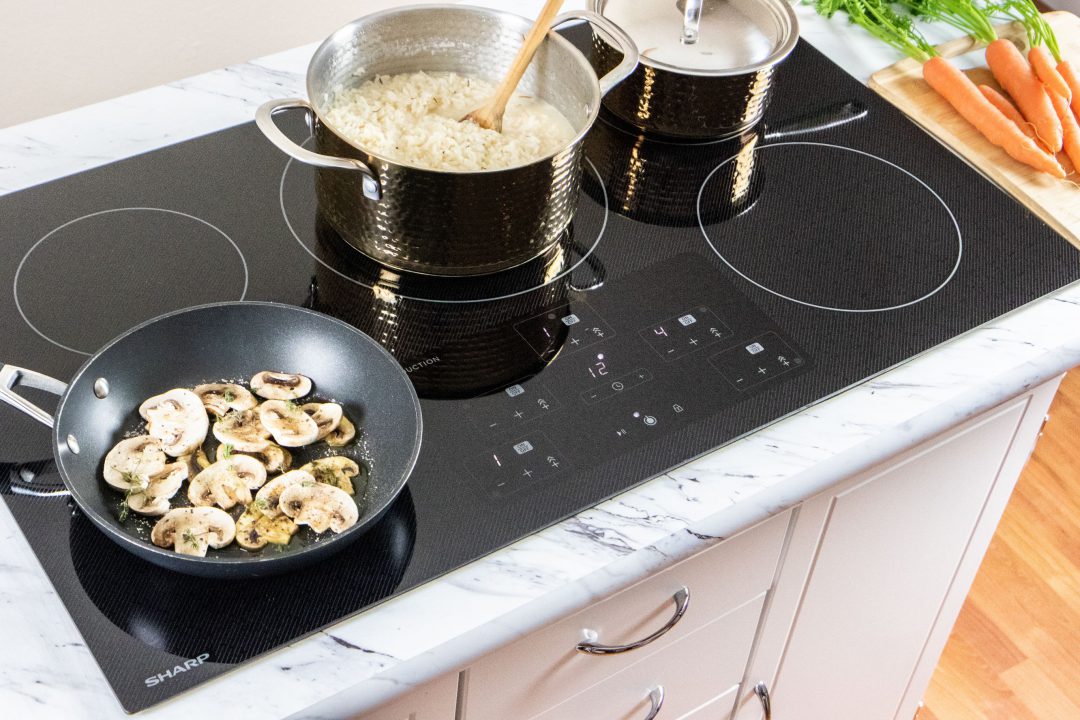Cast Iron Rusting from Induction Moisture: What BBQ Lovers Need to Know
Written By James Morgan
For barbecue enthusiasts, the joy of grilling is not just about the food, but also about the tools of the trade. Among these tools, cast iron cookware holds a special place in the hearts of many grill masters. However, a growing concern among barbecue enthusiasts is the issue of cast iron rusting from induction moisture. This problem can arise unexpectedly, affecting the quality and longevity of your beloved cast iron pans and grills.
In this article, we will delve into the nuances of how induction cooking can lead to moisture accumulation and subsequently cause rusting in cast iron. We will also explore preventive measures and solutions to maintain your cast iron cookware in top-notch condition.

Understanding Induction Cooking
Before diving into the specifics of rusting, it is essential to understand how induction cooking works. Unlike traditional gas or electric stovetops, induction cooktops utilize electromagnetic fields to directly heat the cookware. This method is known for its efficiency and quick heating capabilities, making it a popular choice among modern cooks.
However, this rapid heating can sometimes lead to moisture buildup, especially if the cookware is not properly preheated or if there is a sudden change in temperature. This moisture can settle on the surface of cast iron, leading to the dreaded rusting issue.
Why Cast Iron is Prone to Rust
Cast iron is a fantastic material for cooking due to its excellent heat retention and even cooking surface. However, it is also highly prone to rust if not cared for properly. The porous nature of cast iron allows moisture to seep into the metal, leading to oxidation, which is the primary cause of rust.
This issue can be exacerbated when using induction cooktops, as the rapid heating and cooling can cause condensation to form, particularly in humid environments. This is why understanding the interaction between cast iron and induction moisture is crucial for any barbecue enthusiast looking to maintain their cookware.
Preventing Rust on Cast Iron
Preventing rust on your cast iron cookware is all about proper care and maintenance. Here are some tips specifically tailored for those using induction cooktops:
- Preheat Properly: Always ensure your cast iron is preheated before placing it on the induction cooktop. This helps in minimizing moisture buildup.
- Season Regularly: Regular seasoning of your cast iron creates a protective layer, preventing moisture from coming into direct contact with the metal.
- Dry Thoroughly: After washing, ensure that your cast iron is thoroughly dried. Even the smallest amount of water can lead to rust over time.
- Storage: Store your cast iron in a dry place. Consider placing a paper towel between stacked pans to absorb any moisture.
Restoring Rusted Cast Iron
If your cast iron has already succumbed to rust, don't worry, it can often be restored to its former glory. Here's how:
- Scrub the Rust: Use a brush or steel wool to remove the rust. Be thorough but gentle to avoid damaging the pan.
- Re-season: Once the rust is removed, re-season the cast iron by applying a thin layer of oil and baking it in the oven.
- Repeat if Necessary: Depending on the severity of the rust, you may need to repeat the process a few times.
For detailed instructions on restoring your cast iron, check out this guide.

Additional Tips for Barbecue Enthusiasts
For barbecue enthusiasts, maintaining your cast iron cookware is vital for achieving the best grilling results. Here are some additional tips:
- Use Proper Cleaning Techniques: Avoid using soap on your cast iron as it can strip away the seasoning. Instead, use hot water and a brush.
- Avoid Rapid Temperature Changes: Sudden changes in temperature can cause thermal shock, leading to cracks or warping.
- Invest in Quality Cookware: Not all cast iron is created equal. Investing in high-quality cookware can make a significant difference in durability and performance.
FAQs
Can you use cast iron on induction cooktops?
Yes, cast iron is compatible with induction cooktops. However, it's important to manage moisture to prevent rusting.
How do I know if my cast iron is rusting?
Signs of rusting include a reddish-brown discoloration on the surface or a rough texture where the rust has developed.
Is it safe to use rusted cast iron cookware?
While it's not harmful, rust can affect the flavor and appearance of your food. It's best to remove rust and re-season the cookware.
For more insights on using cast iron with induction cooktops, you can visit Whirlpool's guide.
By understanding the relationship between cast iron and induction moisture, barbecue enthusiasts can ensure their cookware remains in excellent condition, ready to deliver delicious grilled meals every time.



